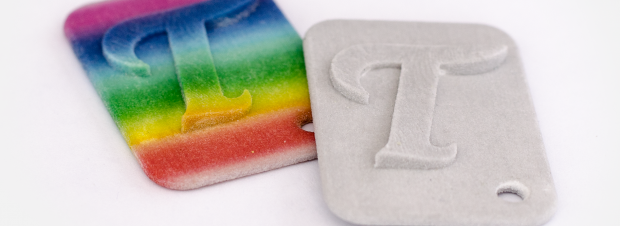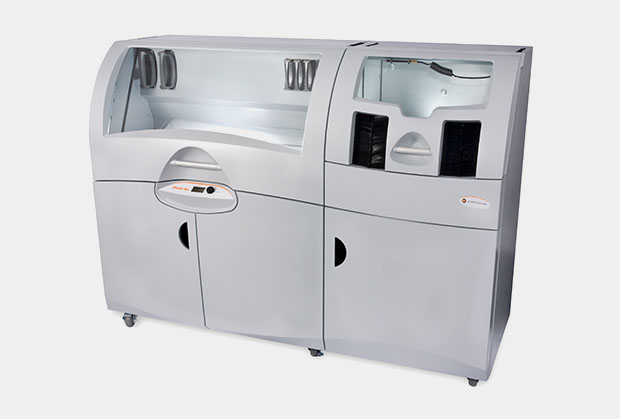
Sandstone
Fully colourful and firm material but inflexible and brittle. Has fine granular surface structure and easily absorbs liquids. Excellent material for the production of presentation and architectonic models, figurines, or dysfunctional prototypes, where colour differentiation is needed.
Typical use
Architectonic models, designer models, shape structures, advertising products, figurines, mold production master models, 3D cartographic maps.
Also see Applying 3D printing
Design guide
Maximum size1: 254 x 355 x 203 mm
Minimal wall thickness: 1,5 mm
Minimum detail size2: 0,4 mm
Layer height: 0,1 mm
1 largest model size printed as one piece, larger models are required to be printed as separate parts but they can easily be connected
2details and structures of models smaller than the minimum details size can be wrongly portrayed or get lost entirely
Finishing
After printing the model is very brittle and needs to be infiltrated with glue, epoxy, wax or a mixture of these materials.
The final model can be finished further to achieve a smooth surface. Spray sealants (all kinds of modeling or acrylic sprays) are effective in sealing. Due to porosity of material, spreading several layers of penetrating coats on the model before inking is advised.
For bonding, epoxy glue has proven to be efficient.
Technology
Inkjet-like printing head moves across a bed of powder, selectively depositing a liquid binding material in the shape of the section. A fresh layer of powder is spread across the top of the model, and the process is repeated. Use of four CMYK printheads provides full-colour design of the final model.
Printer Zprinter 650
Price
Monochrome starts from 0.70 per cm3
Full-color starts from 0.75 per cm3
Ships in
1 – 3 business days
Properties
Resistance ***
Surface roughness ***
Details ***
Flexibility *
Transparency *
+ PROS
speed
pricefull-color
– CONS
brittleness
unsuitable for mechanically stressed parts
Additional info
– fragility of overhanging parts
– soaked model loses its colour









